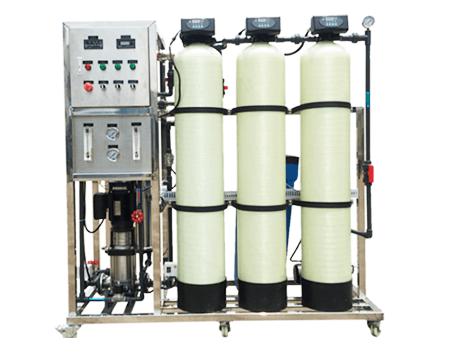Water Treatment Equipment: Ensuring Quality and Safety
Importance of Water Treatment in Africa
Given the prevalence of contaminated water sources, effective water treatment is essential. Proper treatment removes harmful pathogens and chemicals, ensuring water is safe for consumption and use in various industries.
Types of Water Treatment Technologies
Reverse Osmosis (RO): Removes dissolved salts and impurities through a semi-permeable membrane.
Ultrafiltration (UF): Filters out bacteria and suspended solids using fine membranes.
Ultraviolet (UV) Disinfection: Uses UV light to inactivate microorganisms without chemicals.
Ozone Treatment: Employs ozone gas to oxidize and eliminate contaminants.
ROAGUA’s Comprehensive Solutions
ROAGUA provides a range of water treatment systems tailored to different needs:
Industrial RO Systems: Suitable for large-scale operations requiring high volumes of purified water.
Compact RO Units: Designed for small businesses and residential use.
Customized Solutions: ROAGUA’s engineers work closely with clients to develop systems that address specific water quality issues and operational requirements.
ROAGUA’s Water Treatment Equipment:
Reverse Osmosis Systems
Reverse osmosis (RO) is one of the most advanced and effective methods for purifying water. ROAGUA’s RO systems are specifically engineered to tackle the diverse and often challenging water conditions found across African countries. These systems are built using high-quality membranes and components to ensure consistent performance, even in environments where water sources are heavily contaminated.
One of the standout features of ROAGUA’s RO systems is their ability to remove up to 99% of dissolved salts, bacteria, viruses, and other impurities. This makes them ideal not only for drinking water applications but also for use in healthcare, food processing, and industrial settings. With a focus on sustainability, ROAGUA designs its systems to be energy-efficient, helping businesses save on operating costs while contributing to environmental goals.
Furthermore, these systems come with intelligent control panels, making them easy to operate and monitor. Whether you’re a seasoned operator or new to water purification, ROAGUA ensures a user-friendly experience. Their models range from small-capacity units for SMEs to large-scale industrial setups, offering flexibility and scalability for growing operations.
Ultrafiltration and UV Disinfection
In many African regions, pre-treatment is just as important as final purification. This is where ROAGUA’s ultrafiltration and UV disinfection systems shine. Ultrafiltration (UF) is a membrane-based process that effectively removes bacteria, viruses, and suspended solids without altering the natural minerals in the water. This is crucial in maintaining both the safety and the taste of drinking water.
ROAGUA’s UF systems are compact and require minimal maintenance, making them a smart choice for remote or underserved communities. The systems are robust, designed to withstand fluctuating water quality and ensure continuous operation with minimal downtime.
Complementing ultrafiltration is ROAGUA’s UV disinfection technology. Using high-intensity UV lamps, this system deactivates microorganisms without the use of chemicals. It’s fast, efficient, and doesn’t introduce any residual taste or odor to the water. This dual approach—combining UF and UV—provides an extra layer of protection, ensuring that the final output is crystal clear and microbiologically safe.
Customizable Solutions for Diverse Needs
What sets ROAGUA apart is their commitment to customization. They understand that no two water sources are the same. That’s why they offer tailored systems based on detailed water analysis reports. Whether the challenge is high salinity, heavy metals, or microbial contamination, ROAGUA designs equipment that precisely meets local conditions.
Moreover, they offer modular solutions that can grow with your business. This is particularly beneficial for startups that may begin with a smaller setup and scale up as demand increases. ROAGUA also provides consulting services to help clients choose the right technology mix, maximizing both efficiency and return on investment.




